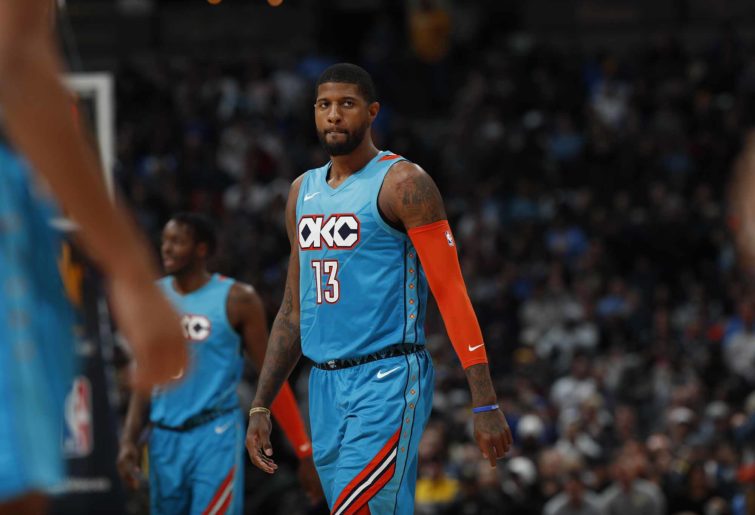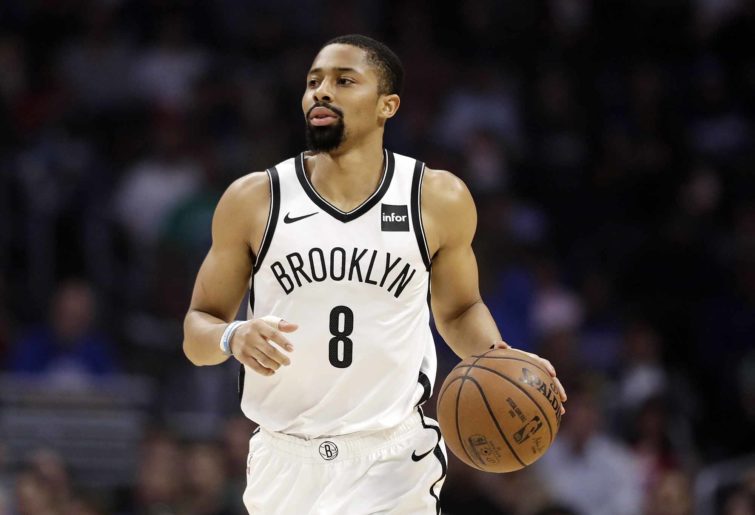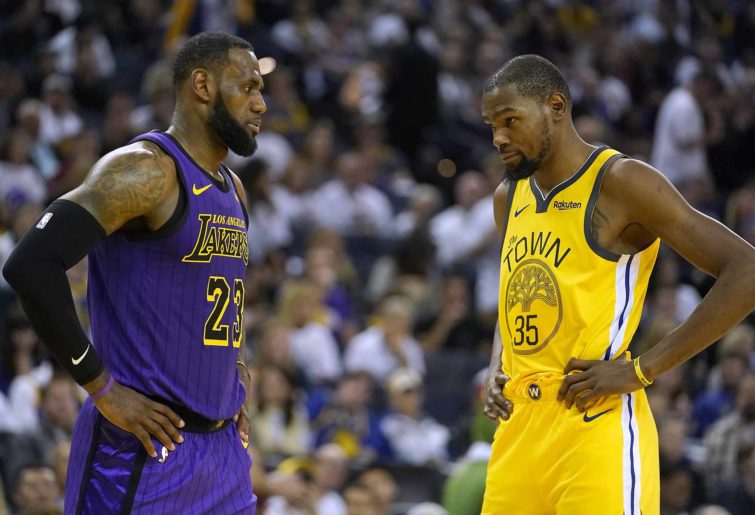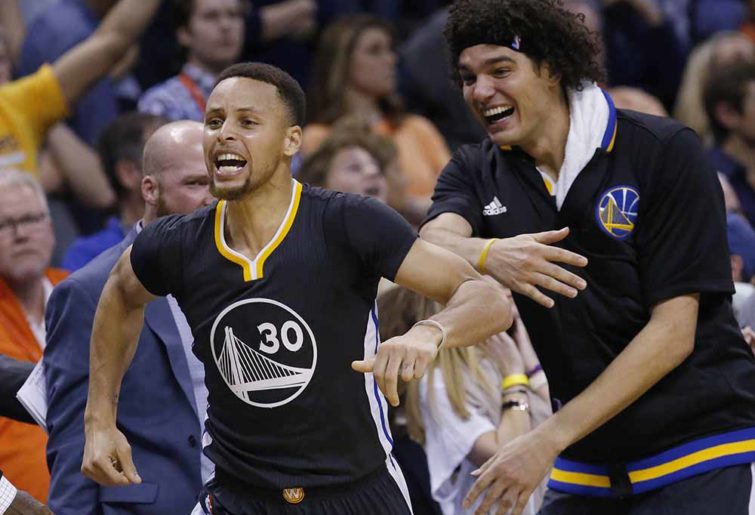Not everybody loves Draymond: Very few options left for Warriors as dynasty disintegrates
The last people to realise or even recognise a dynasty is over are the former champions themselves. Golden State’s golden era is over despite…
Ten seconds left in a regular season match-up between the Toronto Raptors and Brooklyn Nets.
Nets player Allen Crabbe drives to the basket and is pushed to the ground by a Raptors player, while another one falls on top of him. Yes, Crabbe made the shot but there was no foul call? This is just another occasion where an NBA referee has made a biased decision to affect the overall outcome of the match.
The relationship between NBA referees and the players has never been more of an issue than now. Draymond Green, star player for the Golden State Warriors, said that there are too many referees in the league which carry personal grudges against players.
Additionally, he made the bold comment that the NBA should think about replacing all of the referees and starting fresh with a new set. As an example of the bias? Green’s teammate, Kevin Durant, went into the 2017-18 season with 1 game ejection in his whole NBA career.
By the end of that season, he finished with four. In recent media statements, players such as LeBron James and Paul George, two of some of the biggest names in basketball right now, have come out to say that they believe there is bias involved with the way that games are officiated.
When some of the biggest names in the basketball world are complaining about something within their league, it’s clearly going to get some attention from the media and the fans – however that doesn’t mean they have the biggest reason to complain.

Paul George. Two first names huh? What’s up with that? (AP Photo/David Zalubowski)
That privilege goes to the Brooklyn Nets. In the 2017-18 season, the Nets were given the most bad non-calls in the last two minutes of the game. This means the referees weren’t calling foul plays which were supposed the be called and ultimately decided the outcome of multiple games for the Nets.
There were multiple sequences in games where fouls should’ve been called but weren’t.
From this data and evidence there is a lot to take away. It particularly backs up the comments made by one of Brooklyn’s best player’s and rising league star, Spencer Dinwiddie, who suggested in an interview that his team gets “less respect from the officials than other clubs”.
The reasoning behind his comment relates to the January 23 Nets-Thunder game, where Dinwiddie and his team were deprived of calls twice. He was hit with the ball and no call, then two seconds later on the other end of the court he makes the same action that was done to him and was penalised with a foul.
In a press conference interview Dinwiddie spoke down on the referees saying they should be ashamed, “It’s like, that’s Russell Westbrook and Paul George (two of some of the best players in the league) … and I’m Spencer Dinwiddie.”

Brooklyn Nets’ Spencer Dinwiddie during an NBA basketball game Sunday, March 17, 2019, in Los Angeles. (AP Photo/Marcio Jose Sanchez)
Leeroy Mungombe is a Sydney-based referee, officiating for three years in Sydney’s local basketball competitions. He uncovered 13 bad or uncalled calls, four of the controversial decisions made in the final five minutes of the game and all effecting the losing team in a negative way.
“It’s frustrating watching basketball, because I see so many foul plays referees don’t call.” After providing Mungombe with some comments made by players such as Draymond Green saying they should replace all referees he agreed and said “Referees clearly aren’t doing their current job properly and the NBA needs to do something about it, you look at other professional leagues around the world such as the Euro league and the NBL and never see a case of biased refereeing.”
“I never referee in a biased manner so I don’t understand why the NBA referees can’t do it to.”
But why is this topic so controversial and headlining stories all over the world? Why are players speaking out to the media saying all current referees should be replaced? Some would say it’s simply because the players want to have a fair game, and that statement is completely true, but there are also many more reasons with a lot of complexity.
A large aspect of professional basketball is the business behind it and the refereeing bias can affect the long-term success of certain teams.
To break it down simply, when referees make bad calls affecting the final score, it effects the overall record of the team at the end of the season.
For a team such as the Nets who lost a large sum of their games due to the officials last season, it had an impact on their success in the off season.
The big-name players such as LeBron James and Kevin Durant want to sign with and play on winning teams, and if Brooklyn had won those extra games, they could’ve boosted their profile as a team that people want to play on. It also keeps players happy and willing to stay at their current team.

Would these blokes be playing for the Nets if there wasn’t so much bias? (AP Photo/Tony Avelar)
However, looking at this referee bias from a more personal perspective, players hate it because it is often centred around status. It’s statistically proven that if you’re a big-name player on a big-time team, for example Stephen Curry on the Golden State Warriors, you rarely receive bad calls from referees at times which matter most.
As mentioned in the quote above by Spencer Dinwiddie- “It’s like, that’s Russell Westbrook and Paul George … and I’m Spencer Dinwiddie.”
What are some ways the NBA could fix this issue? It isn’t as easy as it seems. Basketball is one of the most difficult sports to officiate, there are too many things going on at one time and is hard to make the right calls all the time for every game to be perfect.
And yet, that is what fans of the game want to see, a perfect game, every time (including myself). What can the NBA do to resolve these issues?
A key to solving the problem is strengthening the video review and utilising it more often. There are many ways this could be done, one that would work particularly well is to have video referees watching remotely.
These referees could make any call they assess appropriate and overrule any call made by the referees if deemed fair.
How will this help? In the current officiating system, referees have the option to ignore any calls for one side, however make as many as they like on the other, in other words, have the option to be biased towards one side.
A great example is game six of the 2016 NBA finals, where officials called a number of soft fouls on the Warriors, making it almost impossible to play physically and their normal style of basketball against the opposition, all while ignoring much more violent fouls on the other end.

No real surprises, but the Golden State Warriors are set to take out the West. (AP Photo/Sue Ogrocki)
Any complaints for missed calls or bad calls are easily opposed by saying “they’re only human” and that they “always miss some”. Statements like this make it very easy for referees to manipulate the system and games for the outcome they want, undermining the credibility of sport.
This new system would make refereeing in the NBA much more stable, fair, reliable and credible, and there would be no excuse for any errors made. If there is a call people deem ‘bad’ or ‘missed’, the referees can refer to the remote officials and get a more detailed look with camera angles, slow motion and other technology for the best outcome.
Through a combination of cutting-edge communications technology and a little tweaking of the rulebook, it’s possible the NBA can change one of its fatal flaws.
By “fatal,” it’s not implied the league will go out of business. The term here relates to the perception of the game by the public.
People will continue to attend and watch games even if the NBA does nothing, but if the NBA wants more respect in the sporting world, they must fix their fatal flaw or risk never acquiring that respect